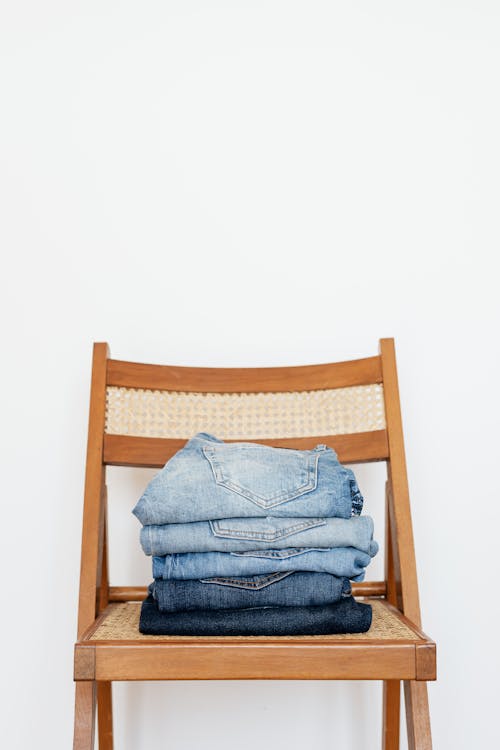Striding Towards Sustainability: Exploring Ethical Brands and Eco-Friendly Trends in Fashion
In a world increasingly conscious of its environmental impact, sustainable fashion has emerged as a beacon of change in the industry. From reducing carbon footprints to promoting ethical practices, the movement towards eco-friendly clothing is gaining momentum. Let's delve into the realm of sustainable fashion, exploring the rise of ethical brands and the latest eco-friendly trends reshaping the way we dress.

The Rise of Sustainable Fashion
1. Ethical Production Practices
Sustainable fashion encompasses a range of practices that prioritize ethical production methods. This includes fair wages for workers, safe working conditions, and transparent supply chains. Brands committed to sustainability often partner with artisans and communities to create clothing that supports local economies while preserving traditional craftsmanship.
2. Materials with a Purpose
Central to sustainable fashion is the use of eco-friendly materials that minimize harm to the environment. This includes organic cotton, hemp, bamboo, and recycled fabrics like polyester made from plastic bottles. By choosing these materials, brands reduce water consumption, chemical usage, and textile waste in landfills.

3. Circular Fashion Economy
The concept of a circular fashion economy focuses on extending the lifecycle of clothing through recycling, upcycling, and reusing garments. Brands are embracing initiatives like clothing rental services, clothing swaps, and take-back programs to reduce textile waste and promote a more circular approach to fashion consumption.
Ethical Brands Making a Difference
1. Patagonia
A pioneer in sustainable outdoor clothing, Patagonia is committed to environmental activism and transparency. Their "Worn Wear" program encourages customers to repair and reuse clothing, extending the lifespan of their products.
2. Eileen Fisher
Known for its timeless designs, Eileen Fisher champions sustainable practices throughout its supply chain. The brand uses organic fibers, supports fair labor practices, and offers a recycling program for old garments.
3. Reformation
Reformation is a trailblazer in sustainable fashion, creating chic clothing from eco-friendly materials like Tencel and recycled fabrics. Their commitment to transparency includes sharing the environmental impact of each garment on their website.
Eco-Friendly Trends to Embrace
1. Capsule Wardrobes

Embracing the "less is more" philosophy, capsule wardrobes focus on a curated collection of timeless, versatile pieces. This approach encourages conscious consumption and reduces the need for fast fashion impulse buys.
2. Vintage and Second-Hand Shopping
Thrifting and shopping vintage not only add unique pieces to your wardrobe but also contribute to a more sustainable fashion ecosystem. Online platforms and local thrift stores offer a treasure trove of pre-loved fashion waiting to be rediscovered.
3. Zero-Waste Design
Zero-waste fashion design aims to create garments without any fabric waste during the production process. Designers use innovative pattern-making techniques to maximize the use of fabric, resulting in stylish and sustainable clothing options.

How You Can Support Sustainable Fashion
1. Research Before You Buy
Look for brands that prioritize sustainability and transparency in their practices. Check for certifications like Fair Trade, GOTS (Global Organic Textile Standard), and B Corp to ensure ethical standards.
2. Care for Your Clothing
Extend the life of your garments by following proper care instructions. Washing clothes in cold water, air-drying, and avoiding harsh chemicals not only preserve your clothes but also reduce water and energy consumption.

3. Participate in Clothing Swaps and Rentals
Explore local clothing swap events or online platforms that facilitate swapping clothes with others. Additionally, consider renting special occasion outfits instead of buying new for each event.
4. Spread Awareness
Share your knowledge and passion for sustainable fashion with friends and family. Social media, blogs, and community events are excellent platforms to educate others about the importance of conscious clothing choices.
In conclusion, sustainable fashion is more than just a trend—it's a movement towards a greener, more ethical future for the industry. By supporting ethical brands, embracing eco-friendly trends, and making conscious choices as consumers, we can all play a part in creating a more sustainable fashion ecosystem.
So, whether you're a fashion enthusiast, a conscious consumer, or simply curious about the future of style, join the journey towards sustainable fashion and make a difference with every outfit you wear.

 Cricket Score Counter
Cricket Score Counter Heads or Tails
Heads or Tails
You have not logged in, please Login to comment.